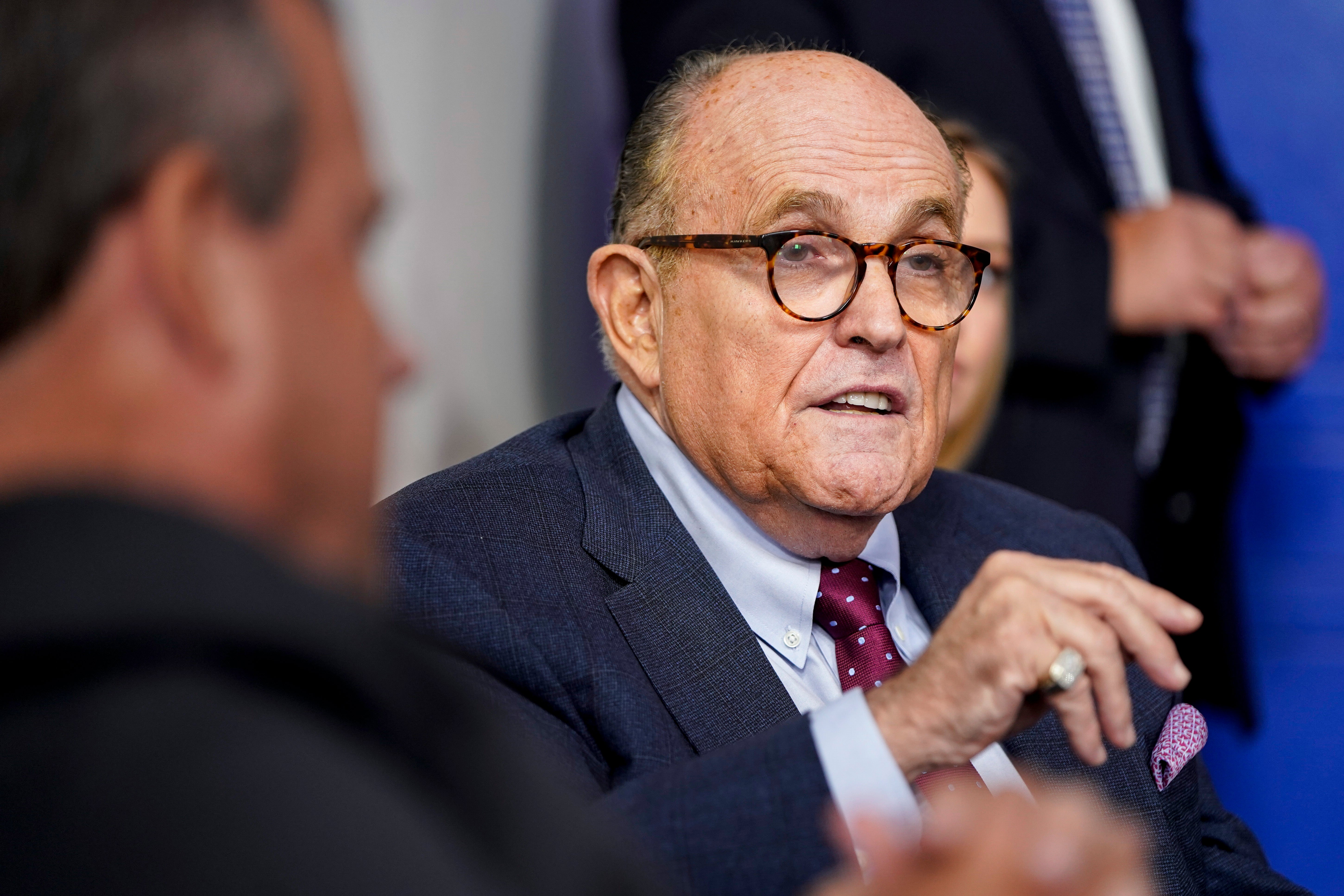US orders China to close its Houston consulate
The US has ordered China to shut its consulate in Houston over spying concerns, ratcheting up tensions between the world’s two most powerful nations as Beijing vowed to retaliate.
Beijing immediately condemned the move and warned it would retaliate unless the US rethought the decision, which it said gave a deadline of 72 hours until Friday to close.
Video footage showed flames coming from the Houston site and fire trucks parked outside, with local media reporting that consulate staff appeared to be burning documents in the courtyard.
“We have directed the closure of PRC Consulate General Houston in order to protect American intellectual property and Americans’ private information,” the US state department said.
Besides its embassy in Washington and the consulate in Houston, China also has four other US sites, in New York, Chicago, San Francisco and Los Angeles. The Houston consulate covers eight states, including Florida and Texas.
China’s Houston consulate is a massive spy centre, forcing it to close is long overdue
Marco Rubio, acting chairman of the Senate select committee on intelligence
The request to close the consulate was made after the US Department of Justice on Tuesday unsealed an indictment charging two Chinese hackers with targeting American companies conducting coronavirus research.
A state department spokesman said that China has “engaged for years in massive illegal spying and influence operations throughout the United States against US government officials and American citizens.”
“These activities have increased markedly in scale and scope over the past few years,” said the person.
The person added that Trump administration officials and the FBI had made public concerns, in court actions and statements, that Chinese officials “have interfered in our domestic politics, stolen US intellectual property, coerced our business leaders, threatened families of Chinese Americans residing in China, and more”.
The sudden escalation in tensions knocked China’s currency. The renminbi fell 0.4 per cent in mainland China trade and by almost 0.6 per cent offshore where it is allowed to fluctuate more freely. Both the onshore and offshore rates climbed back above 7 per the US dollar, a key level closely watched by analysts.
Wang Wenbin, a spokesperson for China’s foreign ministry, said the decision to close the consulate “in a limited time is an unprecedented escalation”.
“It seriously violates international law and basic norms of international relations,” added Mr Wang, according to Chinese state media. US state department cited the Vienna Convention in its decision to close the consulate.
“The US asked China to close Consulate General in Houston in 72 hours,” wrote Hu Xijin, editor-in-chief of state-owned tabloid Global Times on Twitter. “This is a crazy move.”
Hong Kong’s Hang Seng index fell 2 per cent immediately following the news. China’s CSI 300 of Shanghai- and Shenzhen-listed shares surrendered most of its gains after earlier rallying as much as 2.1 per cent.
Other global asset markets also came under modest selling pressure. Europe’s equities benchmark the Stoxx 600 index was down 1 per cent in morning dealings, with futures tracking Wall Street’s S&P 500 down 0.6 per cent.
Beijing warned it would make “a timely and necessary response” if the US did not reconsider.
Bonnie Glaser, China expert at the Center for Strategic and International Studies, said China would “almost certainly shut down the US consulate in Wuhan in retaliation”. Daniel Hoffman, a former station chief with the CIA’s clandestine service, said the agency would have “gamed out” how China would likely respond and that the administration had decided it could stomach the results. “These are all the bellwethers of a 21st-century cold war,” he said of the new tensions and consulate closures.
The Trump administration has previously closed down a Russian consulate in Seattle and expelled dozens of its diplomats in 2018, citing spying concerns, but this is the first time it has directly targeted Chinese sites in the US.
Beijing also alleged that the US had in recent months repeatedly opened its diplomatic pouches, which are used to send items confidentially between overseas missions and home countries without customs inspections. It said the US had also seized China’s official work items.
Marco Rubio, acting chairman of the Senate select committee on intelligence, tweeted on Wednesday: “China’s Houston consulate is a massive spy centre, forcing it to close is long overdue.”
He said it was the “central node of the Communist Party’s vast network of spies [and] influence operations in the United States”, adding China’s “spies” had 72 hours to leave “or face arrest”.
Chinese officials instead framed the action as an attempt to smear Beijing. “For a period of time, the US government has continuously shifted blame and responsibility, stigmatising China,” said Mr Wang.
Relations between Beijing and Washington have fallen to their lowest ebb in generations, with the two sides clashing over Hong Kong, the trade war and alleged human rights abuses in Xinjiang as well as over the origins, spread of and development of treatment for coronavirus, which Donald Trump has taken to calling “China virus” as relations have soured.
The US senator overseeing foreign policy told the Financial Times that he was pushing to give Washington more tools to curb controversial Chinese trade practices, including sanctions for intellectual property violations.

